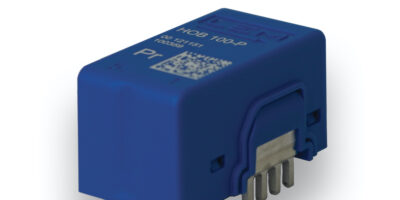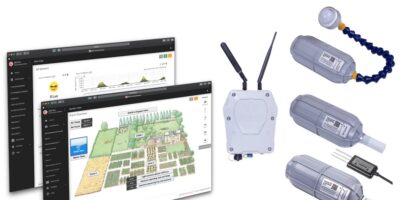For current sensing in some of the harshest environments, LEM has announced the high bandwidth (1MHz) open loop HOB-P series of sensors.
The addition to its range of sensors is claimed to offer the industry’s best performance across four nominal currents. The low power consumption HOB-P sensors were developed specifically to meet high bandwidth sensing requirements when using fast-switching silicon carbide (SiC) MOSFETs in high-voltage pulsed-power circuits where fast and flexible high-voltage pulses are essential.
They have a response time of less than 200 nanoseconds, compared to average response times of around three microseconds, says LEM. They are capable of measuring DC, AC or pulsed current up to 250A. A pick-up coil on LEM’s ASIC allows the sensors to react like a current transformer. They are suitable for wide bandgap power electronics use cases and applications that require enhanced immunity to SIC modules’ the dv/dt (acceleration) issues, delivering improved dv/dt behaviour and lower noise than other sensors on the market, claims the company.
The HOB-P operates across a wide temperature range of -40 to +105 degrees C. This means they can be specified for hand-held plasma cutters, welders and DC/DC converters. They are also suitable for uninterruptible power supplies, switched mode power supplies, AC variable speed and servo motor drives, and static converters for DC motor drives.
The HOB-P sensor is distinguished by its galvanic separation between the primary and secondary circuit, an integrated busbar and a compact design that enables space-saving through hole technology PCB mounting. LEM has introduced four models in the range, namely the HOB-P 50-P, HOB-P 75-P, HOB-P 100-P, HOB-P 130-P. All four models cover nominal currents of 50, 75, 100 and 130A RMS.
The HOB-P series of transducers is CE-marked and covered by LEM’s five-year warranty.
LEM employs 1,500 people in over 15 countries and working at the forefront of mega trends such as renewable energy, mobility, automation and digitization.







